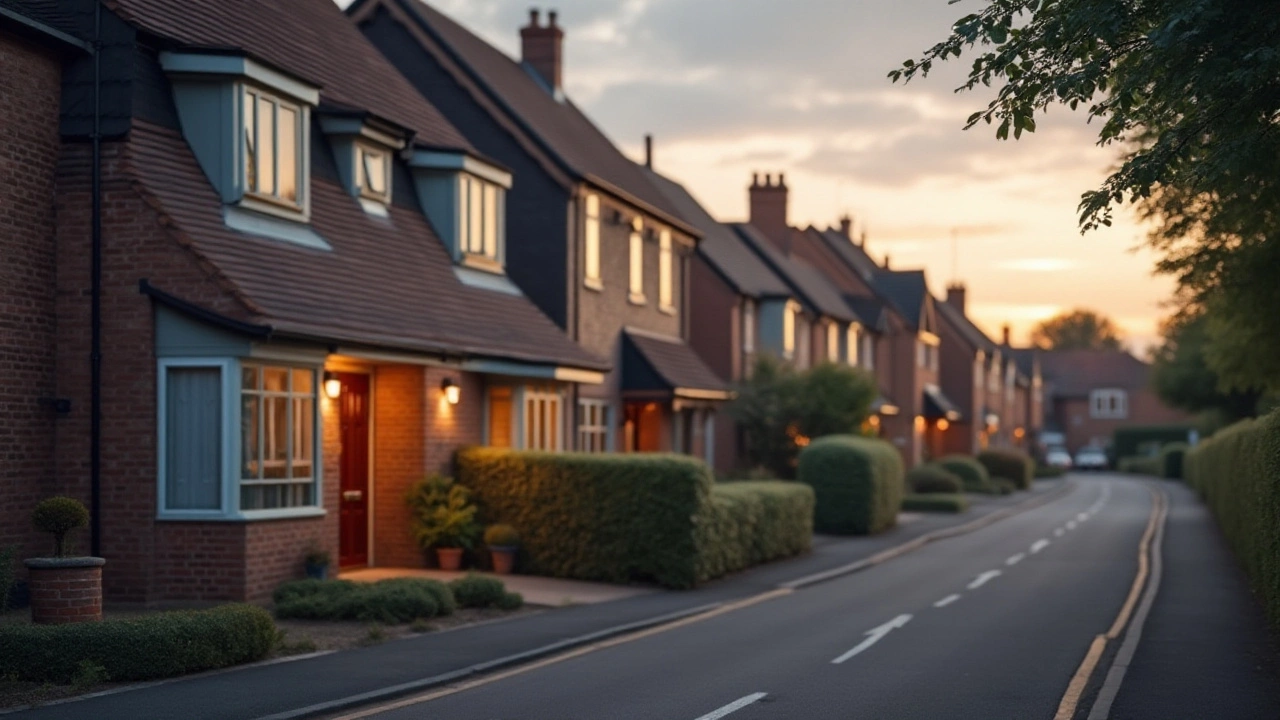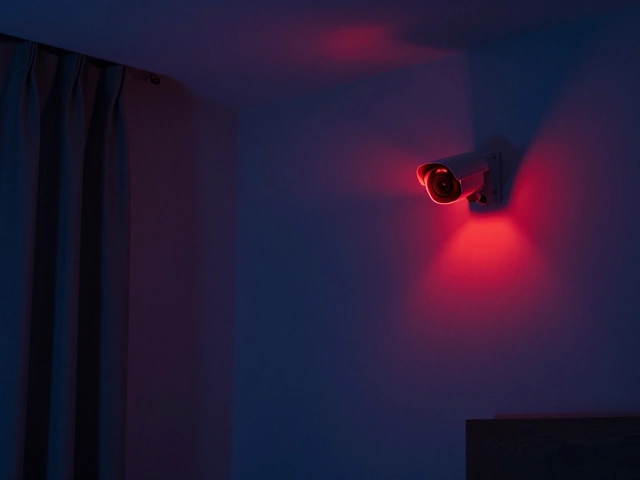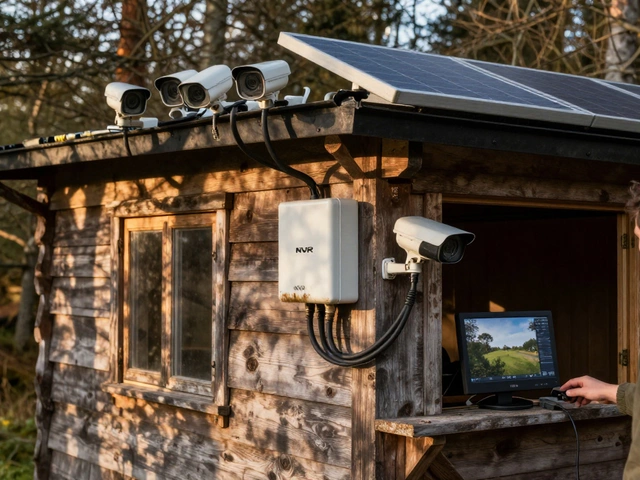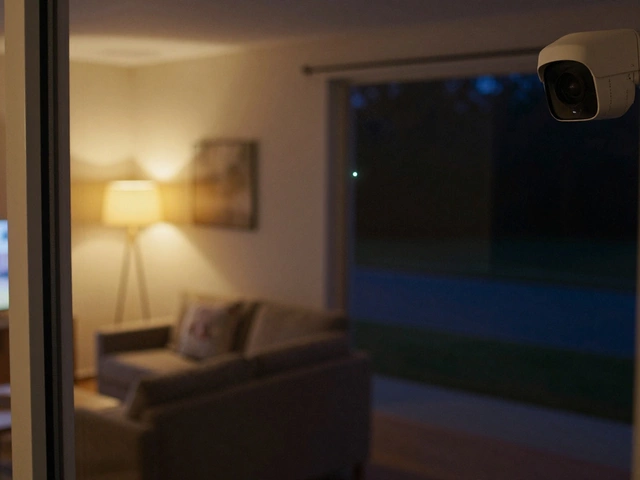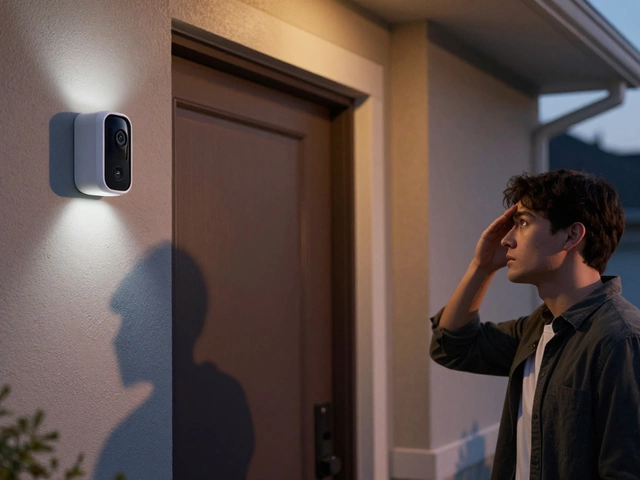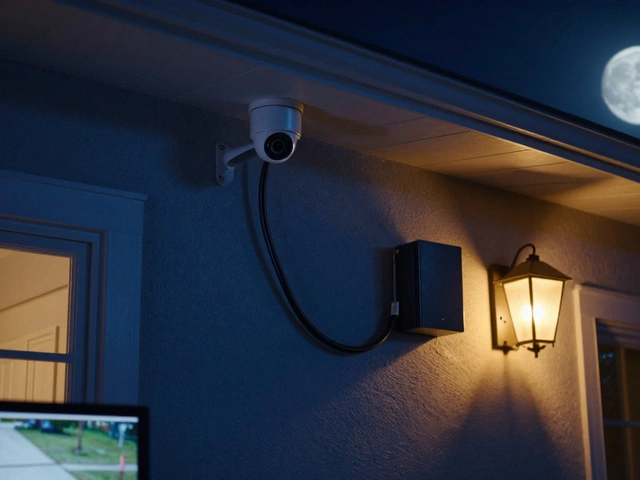In today’s world, ensuring the safety of your home or business is a top priority. When it comes to security, installing cameras can be a valuable investment, but the costs can sometimes seem daunting.
It's not just about the initial purchase price of the cameras; there are also installation charges and potential maintenance fees to consider. In this article, we will explore the various costs associated with setting up CCTV systems so you can make an informed decision on whether it’s worth the expense.
Our journey will take us through understanding the different price tiers of security cameras, deciding between a do-it-yourself approach or hiring professionals, and tips on how to make the process more affordable. Ultimately, you’ll find that securing your peace of mind doesn’t have to break the bank.
- Understanding the Costs Involved
- Types of Security Cameras and Their Prices
- DIY vs. Professional Installation
- Tips for Keeping Security Camera Costs Down
Understanding the Costs Involved
When diving into the world of security camera installation, it's easy to get overwhelmed by the myriad of costs involved. But breaking it down into manageable parts can help make sense of it all. The expense of installing a security system isn’t just the price of the cameras; there are several components to consider that affect the overall outlay. This could include the cost of the equipment, which varies significantly based on features, capabilities, and quality. You must also consider whether the system is wireless or wired, as installation requirements and prices differ. Wired systems might offer more stable connections, but they also mean a more intricate setup and higher installation fees.
Now, let's talk about the differences sourcing your cameras online or from a brick-and-mortar store can make. Online retailers often provide competitive pricing, but local stores might offer helpful insight and installation packages that could save you money in the long run. Prices can range from under a hundred to several thousand dollars, depending on the sophistication of the system you choose. Systems with advanced features such as night vision, motion detection, and high-definition video often command premium prices. However, there may also be potential hidden costs, such as subscription fees for cloud storage or system updates. Check these before making a long-term investment.
Another crucial aspect is installation costs. Choosing between a DIY setup or hiring a professional can drastically influence your budget. A DIY installation is appealing to those on a tighter budget, and many modern systems are designed with this in mind, offering easy, app-based setups. But not everyone has the technical skills required, and sometimes hiring a professional for a more complex installation is the smarter choice. This usually means additional labor charges, which can increase the installation cost significantly.
According to a study by the Electronic Security Association, professionally installed systems tend to be more reliable and have a longer lifespan, giving you peace of mind in exchange for those extra dollars.
Lastly, ongoing maintenance and potential repairs are costs you shouldn't ignore. Just like any other technology, security cameras might need occasional fixes or updates. Whether it’s clearing dust that’s affecting lens clarity or upgrading old hardware, these little things can add up over time. Ensuring you budget not just for the immediate setup but for ongoing upkeep can make or break the cost-effectiveness of your security investment.
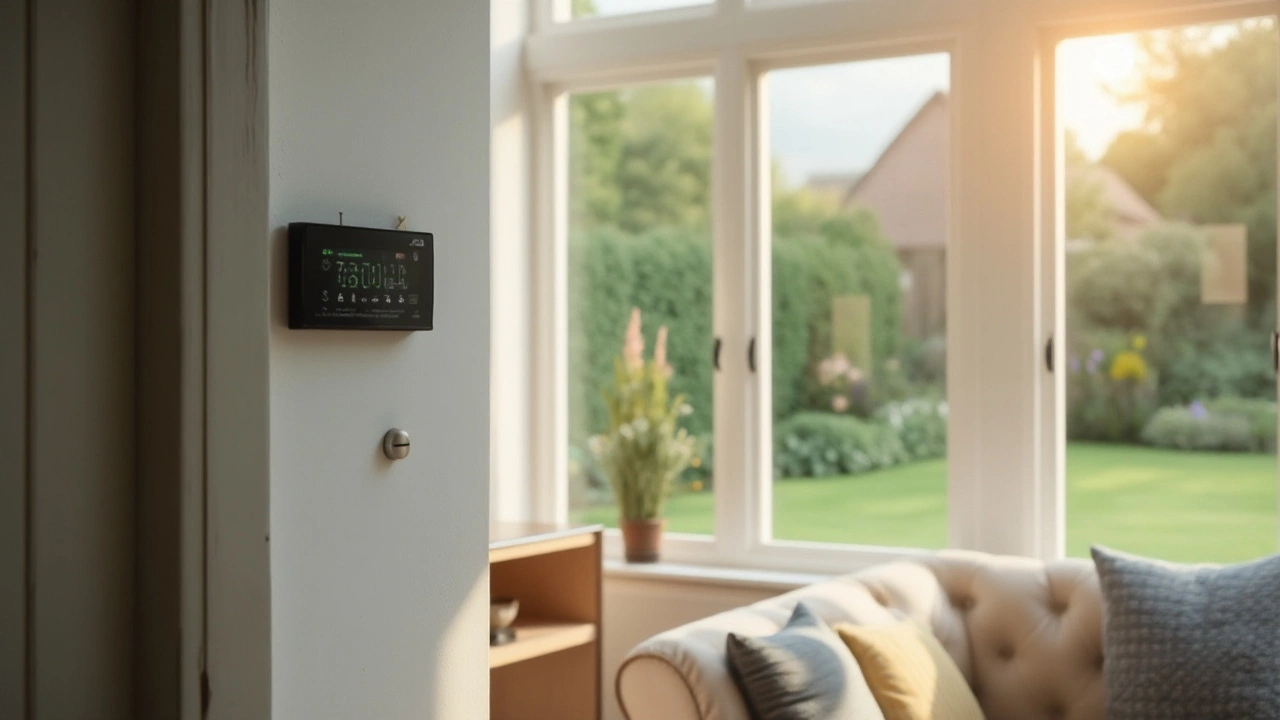
Types of Security Cameras and Their Prices
When considering setting up a security system, understanding the wide variety of camera types and their associated costs is crucial. Security cameras come in several forms, each suited for specific needs and budgets. The most common types include wired, wireless, indoor, outdoor, and PTZ (Pan-Tilt-Zoom) cameras. One factor influencing the price of these cameras is their features and technology. Wired cameras, known for their reliable connection and consistent power supply, often range from $100 to $300 per unit. However, it's essential to factor in the cost of professional installation if you're not comfortable with drilling and cabling. Wireless cameras, which are easier to set up, vary between $80 and $250, making them a popular choice for the diy enthusiast.
In the realm of enhancing safety, security camera installation decisions need to weigh the pros and cons of indoor versus outdoor models. Indoor cameras are generally less expensive, priced between $50 and $150, offering a cost-effective way to monitor living spaces. Meanwhile, outdoor cameras, built to withstand various weather conditions, range from $100 to $400. They often come with infrared capabilities for night vision, ensuring round-the-clock surveillance. PTZ cameras stand out for their advanced functionalities, with the ability to remote-control their movement for a broader field of view. These are typically the most expensive, ranging from $300 to over $1,000, making them suitable for businesses or large properties seeking comprehensive coverage.
Let's explore some numbers in more detail. According to a survey by a leading home security expert, the global market for CCTV systems is projected to grow significantly over the next few years, driven by advancements in AI and analytics. As innovation continues, prices may fluctuate. Up-and-coming models equipped with facial recognition and smart home integration might be priced higher initially, but can potentially provide more value over time in terms of proactive security measures. Remember, when choosing a camera system, it isn't just about the upfront cost; consider the longevity and technological integration that align with your camera setup price.
"Investing in the right security camera is not just about buying a piece of equipment; it's about ensuring peace of mind and safeguarding your loved ones," notes John Davidson, a home security consultant with over two decades of experience.
When shopping for cameras, don't overlook the potential extra costs associated with each purchase. Monthly fees for cloud storage, accessories like mounts or extra batteries, and potential maintenance or repair costs can all add up. To combat these expenses, looking for bundled packages that include several cameras can lower the per-unit cost, making it a more economical choice. Services offering customized packages based on needs and property layout can be a pivotal step towards achieving affordable security goals, ensuring you get the best value for your investment.
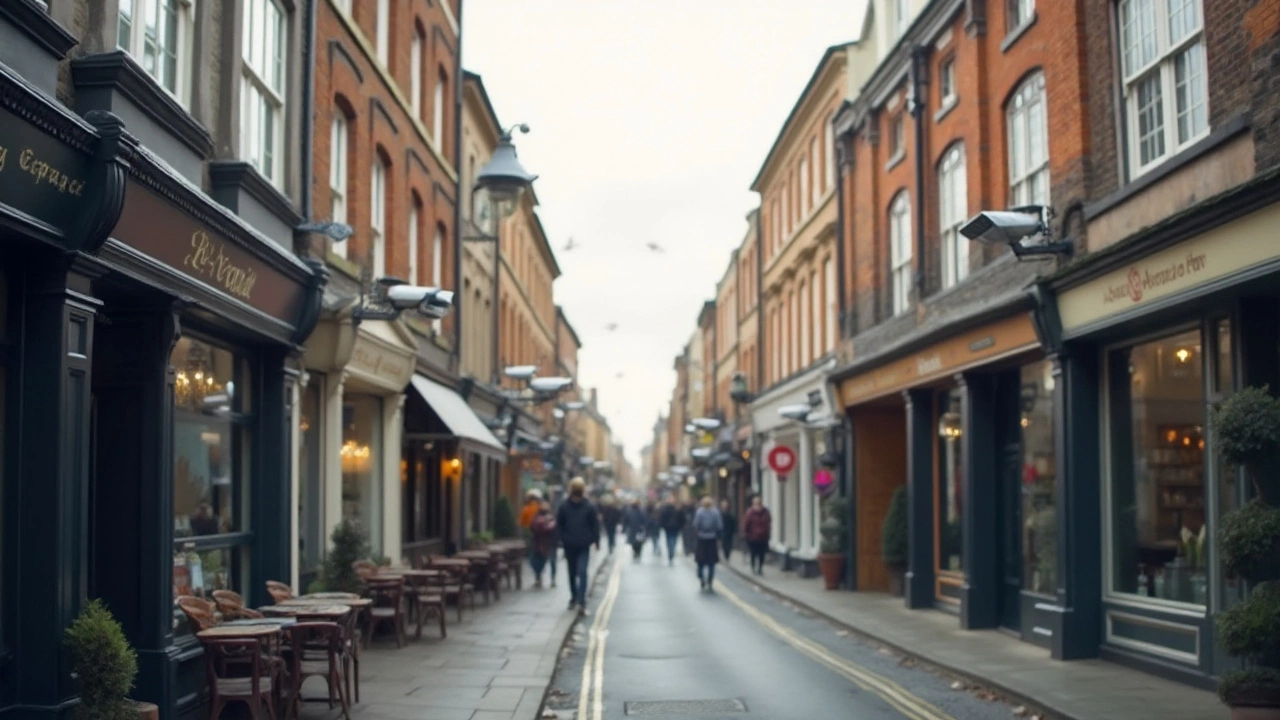
DIY vs. Professional Installation
When it comes to setting up your security camera installation, one of the biggest decisions you'll face is whether to take a do-it-yourself approach or to hire professionals. Both options come with their own sets of advantages and challenges, and weighing these correctly can greatly impact your CCTV cost and experience. The DIY route allows you to have complete control over how and where you install your cameras. This can be particularly appealing if you're tech-savvy and enjoy getting hands-on with gadgets. By purchasing a system online or from a store, and planning out your setup, you might even find it an exciting project. Plus, by skipping the fees associated with professional help, you could save a significant amount of money.
However, there are several aspects to bear in mind that could affect both your wallet and your peace of mind. For instance, installing cameras might seem straightforward, but the reality can be more daunting without the necessary experience or tools. DIY kits often promise ease-of-installation, yet they require some technical knowledge for optimal performance and positioning. Incorrect installation can lead to blind spots or poorly calibrated systems that won't capture clear footage when it’s needed most. Additionally, if you face issues, you’ll need to troubleshoot on your own, which can be time-consuming and frustrating.
On the flip side, choosing a professional installation service offers distinct benefits. Quality often matches the price, and hiring experts ensures that your cameras are set up with precision to cover all essential areas, maximize angles, and minimize vulnerabilities. Professionally installed systems are typically guaranteed to be operational right from the start. Moreover, installer teams are adept at tackling potential issues related to complex wiring or integrating the system into your existing network.
Many companies offer maintenance packages that include routine checks and updates, enhancing reliability and longevity of the system. "The ultimate question is whether the peace of mind and system effectiveness are worth the added expense," says Steven Harrison, a home security analyst. Hiring a pro might push your camera setup price upwards, but it can prove to be a worthwhile investment for future security.
"Considering a professional installer is often a wise choice for those without technical expertise," notes John Smith from SecureTech. "It takes the guesswork out, ensuring every camera is set for peak performance."
Both routes have their merits, and it's essential to assess what aligns best with your needs and capabilities. If you’re leaning towards DIY, research thoroughly and be prepared to dedicate time and effort. For those who want assurance and ease, professional installation may be the stronger path, potentially reducing long-term headaches and providing higher quality results. Regardless of which path you choose, prioritizing your needs and resources will guide you to the best decision.

Tips for Keeping Security Camera Costs Down
When it comes to installing security cameras, budget is often at the forefront of minds. Fortunately, there are several strategies you can employ to keep costs manageable without sacrificing quality or coverage. By being savvy and doing a bit of research, you can find ways to reduce expenses at every step of the process so you don’t feel the pinch on your wallet.
Start by considering the type of cameras you really need. Do you require high-definition, weatherproof models, or will a basic model suffice? The market offers a vast range of options from simple dome cameras to sophisticated PTZ (pan-tilt-zoom) cameras. A well-chosen mix of technology can cater to most surveillance needs without hiking costs unnecessarily. Consider where you can consolidate usage, such as positioning cameras at strategic points that can cover multiple areas.
Shopping smartly is another great approach. Check various retailers and online platforms for discounts and bundled deals. Brands often compete fiercely, leading to sales and promotions that can trim costs significantly. Some manufacturers offer discounts when you purchase several units, so examine what those savings might be. Look for independent product reviews to ensure you're getting value for your money.
Deciding whether to opt for a DIY or professional installation might be one of the biggest influences on your budget. DIY might seem like the cheaper choice initially, as it eliminates labor costs. However, it's essential to weigh your technical skills against the potential setbacks. Sometimes, a trial-and-error method can end up increasing expenses, especially if mistakes lead to equipment damage or improper setup. If you choose professional help, get several quotes and compare services to ensure you're paying a fair price.
Lastly, don't overlook hidden costs such as maintenance and cloud storage fees. Some companies offer comprehensive packages including installation, maintenance, and storage at a competitive price. Whether you’re leaning towards DIY or seeking professional help, always ensure you understand the full picture of ongoing costs and service requirements. As a pro tip, remember that sometimes, initial spending might seem higher, but strategic decisions can save you more in the long run.

